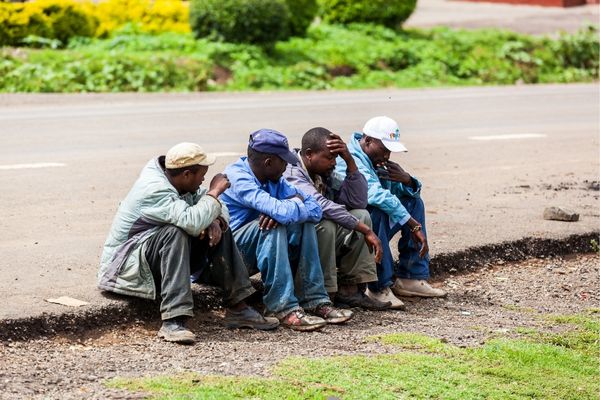
Deadline: 15-Dec-22
Applications are now open for the Activist in Residence (AiR) Program, a month-long engagement bringing together progressive organizers, theorists, writers, artists, activists, and/or other practitioners looking for a quiet and safe space to strategize on advancing radical values and building power together across borders.
The AiR 2023 program is co-organized and co-designed by the Pan-African popular pedagogy collective Mwamko with support from Africans Rising.
This residency program will bring together small transnational groups (or core members of much larger groups) who are currently cooperating across and/or beyond the African continent, spanning diverse contexts to build on their ongoing efforts and scale up transnational solidarity.
The AiR program will utilize TCDC’s and Mwamko’s people, knowledge, facilities, and spaces to strategize and take action on their shared goals. The group may create an action plan or other relevant outcome that helps them take the next steps to advance their cause. The program — to be co-designed with the residents — may include (but is not limited to) dialogues, reading sessions, creative sessions, games, excursions, and strategic planning.
2023 Theme: Nurturing revolutionary hope: transnational solidarity and cooperation for a decolonized future.
- The Activist in Residence (AiR) program takes place at the TCDC Campus in Arusha, Tanzania — established during Pan-Africanist Julius Nyerere’s administration at the foothills of Africa’s highest mountains. This is the region where the Arusha Declaration was made in 1967, inaugurating ujamaa afrosocialism.
Objectives
- Create space and appropriate conditions for the residents to learn from one another, strategize, and plan together.
- Deepen the shared understanding and knowledge base of different tools, theories, and principles for progressive change in light of intensifying conditions.
- Provide an opportunity for healing, especially in view of sustained repression.
- Enhance solidarity among those participating and the possibility to expand their existing networks of mutual support.
- Provide an opportunity for progressive CSO leaders and other changemakers to interact with those in residence and learn from one another.
- Expand the commons to provide “movement knowledge” or resources in some form, offered by residents. Implement a consolidated strategy after three weeks of planning and strategizing.
Focus Areas
When recruiting activists to participate in the residency program, it is paramount that the activists are already engaged in and come to address at least one of the below thematic areas.
- Internationalism or Pan-Africanism
- In this age, a few billionaires and a handful of their authoritarian lackeys across the globe are able to meet swiftly and take action against us. This creates problems that negatively affect the majority of us. The struggles — climate, economics, militarism, racism, to name a few — are inextricably interconnected. However, digital colonialism, suppression of mobility, and class warfare make it increasingly difficult to cooperate beyond borders and across continents, especially in majority black and brown countries where access to technology and information is deliberately restricted and monetized.
- Challenges in contemporary movement strategies
- Social movements are much more numerous than they were just a few years ago, though their impact is on a stark decline. Why is it that movements have broader participation and less power? How do AiR navigates the cyberdystopia? How does AiR confront the normalization of fascism? How do AiR protects itself against co-optation and patronage systems at a time when AiR needs to be making more radical shifts much faster? What do AiR does about nihilistic attitudes toward political ideology, history, and even education itself?
- Decolonization
- Whether movements are fighting for climate justice, black liberation, or access to health care, they are increasingly turning to indigenous and pre-colonial wisdom. There is more keen awareness today that the solutions to its problems are not chiefly held by technocrats, political elites, and capitalists, but rather by those who have risen above systems of oppression despite the odds. AiR welcomes applications from those who look critically and consciously to the past to find answers for the present and a vision for the future.
For more information, visit MS TCDC.
